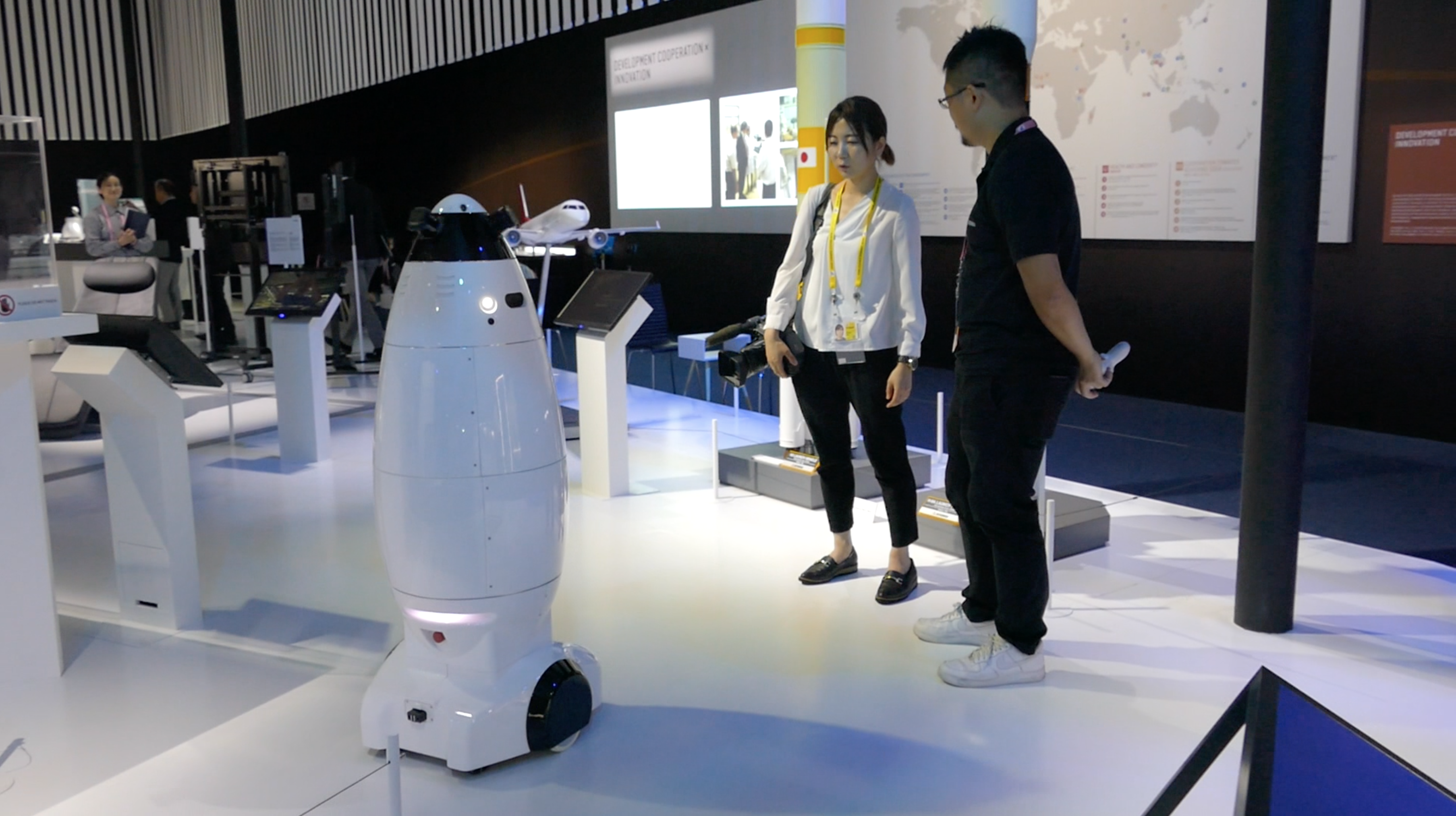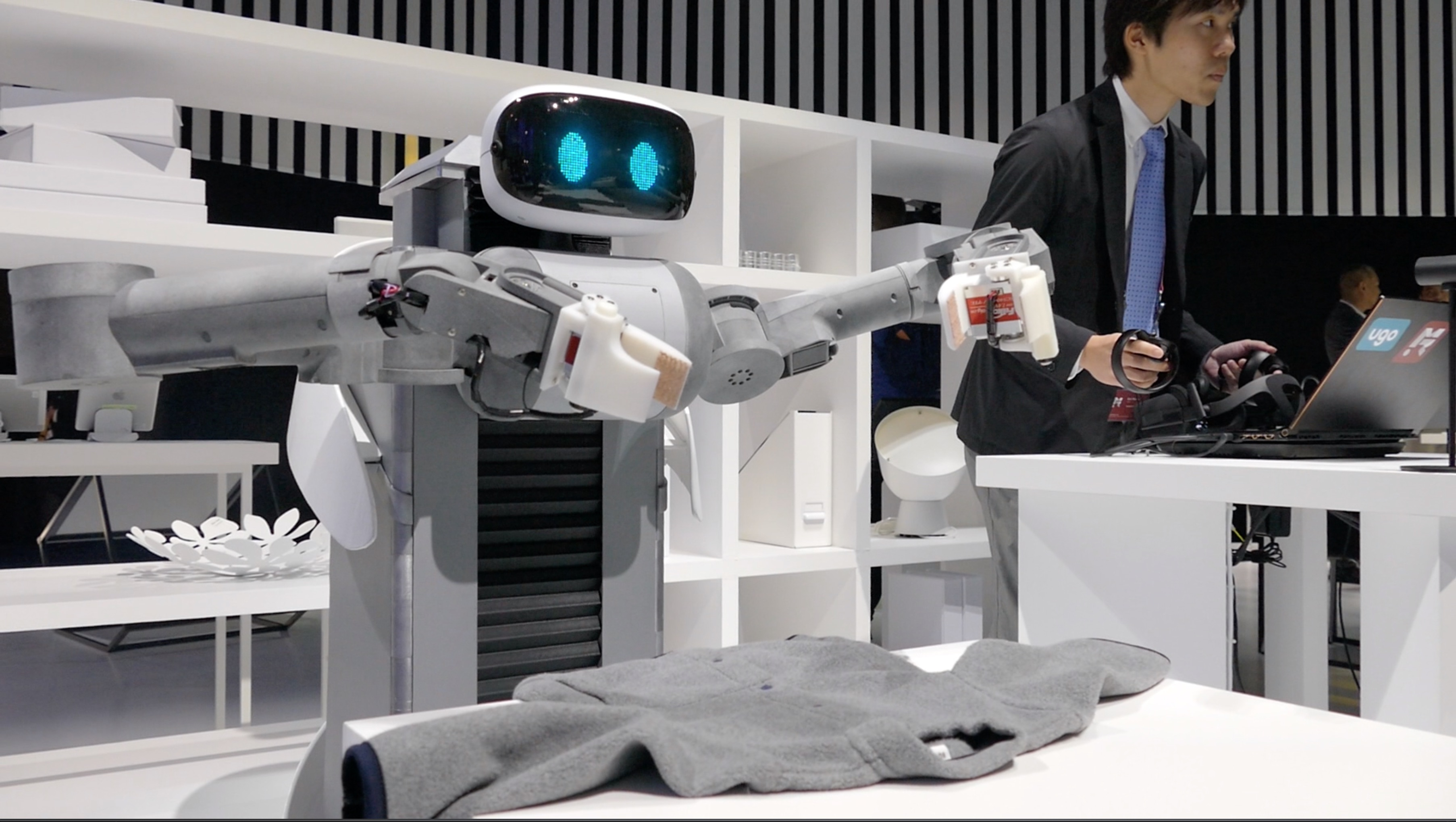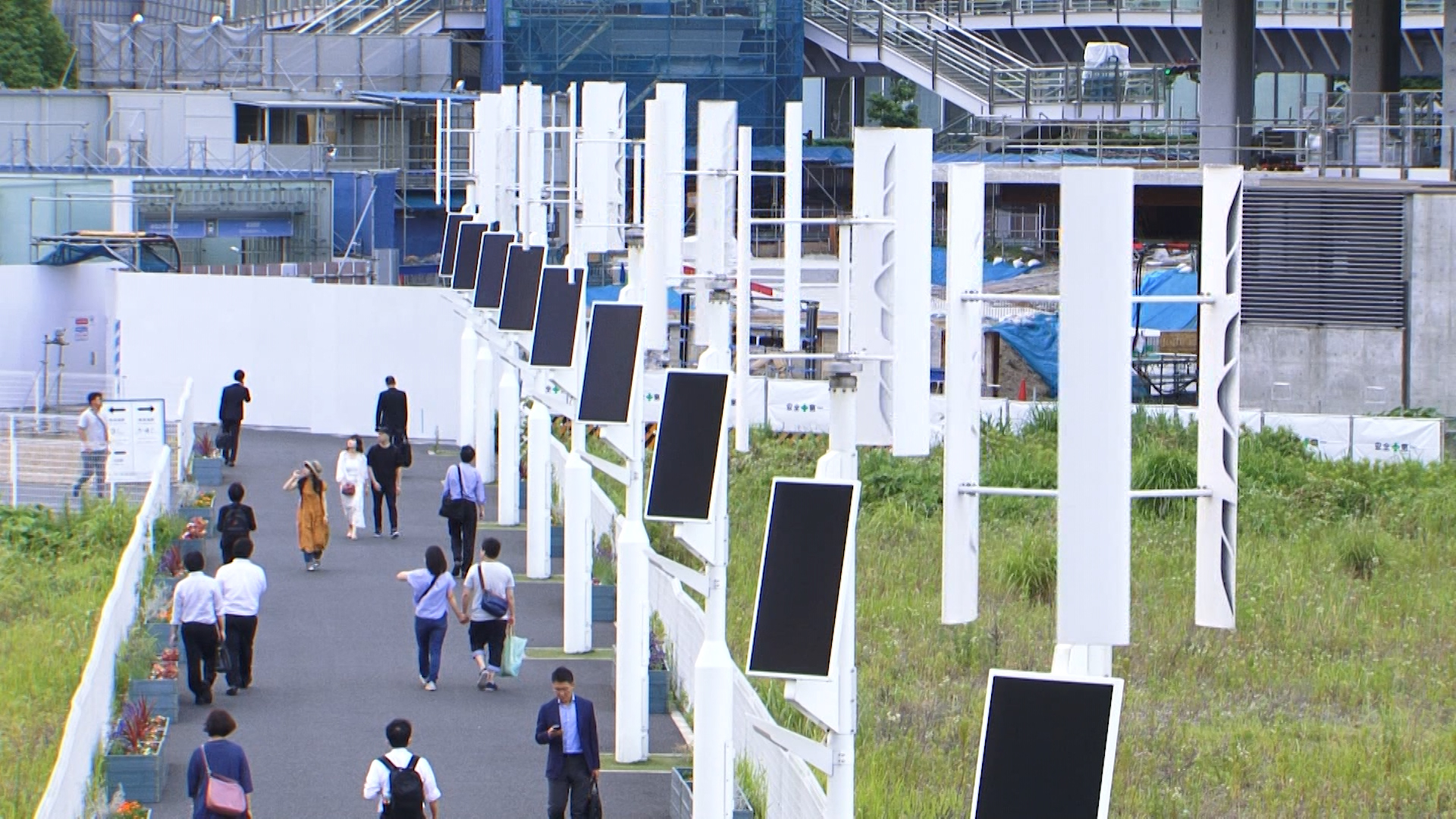

Patrol Robot displayed at the G20. Artificial intelligence and communication network enables the robot to identify a person and his/her intent. Some robots have facial recognition. /CGTN Photo
With a fast-aging society and a diminishing population, Japan is promoting a super-smart society where innovations and technologies create solutions to various issues.
"Society 5.0" is a part of Japan's growth strategy to overcome problems arising from the country's ever-changing demography and a stagnant economy.
The concept is one of the key features to be shared at the G20 Summit in Osaka. Japanese Prime Minister Shinzo Abe emphasized the increasing importance of data for the global economy during the Davos conference, outlining the importance of data governance.
However, Japan has faced several hurdles in promoting the concept of a "super-smart" society. Many Japanese companies have developed their technologies on their own, with little integration between the available technologies.

Robot displayed in the G20 exhibition. I can assist elders and disabled people with household chores. /CGTN Photo
Although useful technologies are available in the country, all of the advanced technologies needed to be consolidated and legislation needed revising to create such a society.
Seeing the need to promote and consolidate the available technologies and applications, the Tokyo Institute of Technology took the initiative to form a "Super Smart Society Promotion" consortium.
Kei Sakaguchi, a professor at Tokyo Institute of Technology, said to raise the level of understanding and education, adding that it is vital to share information and integrate the technologies.
"Japanese companies always had a strong tendency to be closed and made research and development independently," said Sakaguchi.
"I am not trying to deny it, but we want to look at it from a broader point of view. We hope to raise the level of education from elementary to high school students," Sakaguchi said.
The consortium has received support from over 30 institutions.

Solar pannels at Minatomirai in Yokohama City. Energy grid and communication network in city planning has already started in Yokohama. /CGTN Photo
Incorporating cyber and artificial intelligence into business and society holds promise for Japan. "Smart society" can address Japan's long-standing problems of an aging and shrinking population, which is limiting economic growth.
Professor Sakaguchi said Japan is an ideal location to test various smart technologies.
Meanwhile, smart agriculture can help Japan's aging farms. Robots can contribute to more efficient output in agricultural production while reducing the intensive labor in old farming communities.
Disaster preparation is another field amenable to modern technology, as Japan has faced several natural disasters in the recent decade. Improved communications and early warning systems can reduce fatalities considerably.

Copyright © 2018 CGTN. Beijing ICP prepared NO.16065310-3
Copyright © 2018 CGTN. Beijing ICP prepared NO.16065310-3